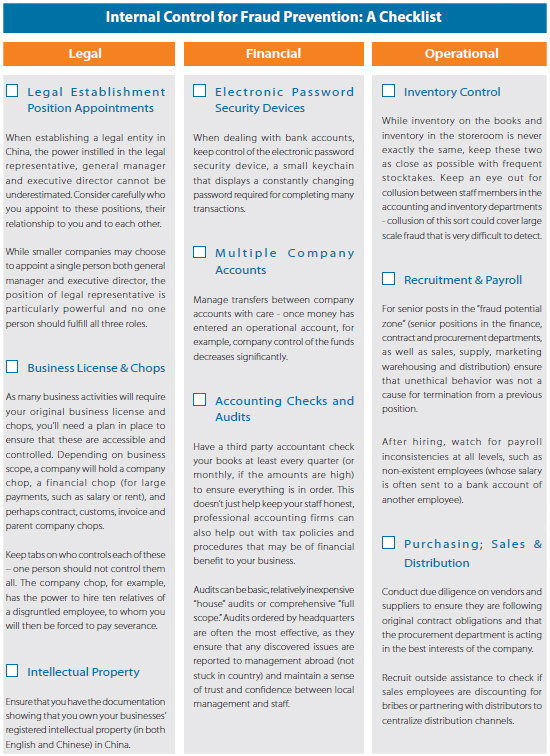The fraud triangle: motivation, rationalization, opportunity
The "fraud triangle" is a fundamental concept in understanding the psychology of fraud. It consists of three key elements that converge to create an environment conducive to fraud: motivation, rationalization, and opportunity. To effectively prevent fraud, organizations must address all three of these components.
- Motivation: People commit fraud for various reasons, often driven by financial pressures, personal grievances, or a desire for personal gain. Recognizing the signs of potential motivation for fraud within your organization is crucial. This could involve monitoring employee financial difficulties, conducting regular financial wellness checks, and creating a work culture that promotes ethical behavior.
- Rationalization: Fraudsters often justify their actions to themselves. To combat this rationalization, organizations should promote strong ethical values and a culture of integrity. Encouraging open communication channels where employees can voice concerns or report suspicious behavior without fear of retaliation can help deter rationalization.
- Opportunity: The opportunity for fraud arises when internal controls are weak or absent. Organizations must implement robust security measures, internal controls, and oversight to limit this opportunity. Regularly reviewing and updating these measures can help ensure they remain effective in preventing fraudulent activities.
Fraud risk in China
When it comes to fraud risk, China presents a unique set of challenges and opportunities that differ from many other locations. While fraud itself is a universal issue driven by human self-interest, China's business environment can magnify certain aspects of fraud risk.
Differences in fraud risk
The prevailing notion is that fraud risk in China is not fundamentally different from elsewhere, but the circumstances create unique challenges. China's business transactions often lack transparency, and the language barrier can serve as a formidable shield against detection. While attributing fraud to Chinese culture is an oversimplification, certain characteristics of Chinese business culture can influence the prevalence of fraud.
One notable distinction is the significance of contracts. In China, contracts are generally less binding than in other regions, leaving room for fraudulent activities. Additionally, the response to fraud within Chinese companies may differ from practices in other countries. Punitive actions after discovering fraud are often less severe, potentially encouraging fraudulent behavior.
Types of fraud in China
Fraud in China encompasses a wide spectrum, ranging from small-scale petty cash fraud to highly sophisticated schemes deeply embedded in an organization's operations. Protecting intellectual property (IP) has become a growing concern, especially for companies that have shifted from manufacturing-centric models to those where the true business value lies in their IP assets.
The complexity of an organization's structure can also significantly impact fraud risk. Companies engaged in extensive marketing, dealing with multiple vendors, and managing complex supply chains face higher fraud risks. Even with a simple business model, inappropriate behavior uncovered during internal audits can run deep within a company's operations.
Specific fraud risk areas in China-based enterprises
Several operational areas within China-based enterprises are particularly vulnerable to fraud:
Supply chain:
- Purchasing overpriced materials due to inappropriate relationships between relevant staff and middlemen/intermediaries.
- Improper disposal of scrap materials.
- Poor inventory control.
- Discrepancies between contract salaries and actual payroll payments.
- Deliberate over-accrual and unauthorized use of welfare benefits.
- Existence of ghost employees.
- Unauthorized or improper reimbursements.
- Non-payment of taxes and social security.
Sales:
- Selling goods at or below cost due to inappropriate agreements between sales staff and purchasers.
- Payment of unauthorized sales commissions to employees or their associates.
- Lack of a competitive bidding process.
Preventing fraud in China
For foreign-invested enterprises in China, preventing fraud entails a heightened focus on strengthening internal control systems. This effort aligns with the "fraud triangle," which addresses motivation, rationalization, and opportunity as key elements of fraud risk.
Internal control primarily targets limiting the opportunity for fraud. For instance, enhancing the physical security of inventory can prevent fraudulent activities related to misappropriation. An illustrative example is a Chinese clothing manufacturer with an employee who deliberately mislabelled good material as scrap and sold it at a lower price to a separate company, ultimately producing counterfeit products.
Recruitment practices can address the motivation aspect of fraud prevention. Pre-employment screening, particularly for sensitive positions within the "fraud potential zone," should be standard practice. This zone includes senior roles in finance, procurement, sales, supply, marketing, warehousing, and distribution.
While China's labor laws challenge pre-employment screening, discreet investigations can help uncover unethical behavior. The most challenging aspect to address is rationalization, which often involves procurement staff and suppliers. Given their thin profit margins, a closer examination can determine if they are acting in the company's best interests and adhering to contractual obligations.
Below, we provide an internal control checklist to help foreign enterprises in China limit their risk of fraud while operating in the country.

Fraud risk management strategies
In business and finance, the threat of fraud is ever-present. Organizations need to be proactive in their efforts to prevent fraud from occurring.
Addressing the rationalization aspect in fraud prevention
Organizations should foster a culture of ethics and integrity to address the rationalization element in fraud prevention. This can be achieved through:
- Ethical training: Provide regular training on ethical behavior and its importance within the organization.
- Code of conduct: Develop and enforce a robust code of conduct that outlines expected behavior and consequences for ethical violations.
- Ethical leadership: Lead by example. Senior management should consistently demonstrate ethical behavior and values.
Recruitment and pre-employment screening strategies
New hires can pose a risk if their backgrounds and motivations are not thoroughly assessed. Implementing robust recruitment and pre-employment screening processes is crucial. This can include:
- Conduct thorough background checks on all potential employees, including criminal, credit, and employment history checks.
- Verify the references provided by candidates to gain insights into their character and work ethics.
- Use behavioral interview techniques to assess a candidate's honesty, integrity, and ethical values.
Promoting an ethical culture
Promoting an ethical culture within an organization is a proactive approach that instills employees' strong sense of ethics and values. It starts with clear communication of the company's ethical expectations and principles.
For example, a financial institution in China might emphasize the importance of transparency, honesty, and integrity in all dealings. Leaders within the organization should demonstrate these values in their actions and decision-making processes, effectively acting as ethical role models for employees to imitate. Regular ethics training and workshops can further reinforce these principles, helping employees understand the company's stance on ethical conduct. The following points are parts of ethical culture initiatives within a company
Employee training and vendor management
One of the key elements in promoting ethical business conduct is providing regular training to employees. This training should focus on:
- Ethical decision-making;
- Recognizing potential red flags; and,
- The consequences of unethical actions.
Organizations empower employees to make ethically sound choices by raising awareness and providing guidance.
In China, third-party relationships are common. However, these relationships can also introduce risks. Organizations must conduct due diligence to mitigate these risks when engaging with vendors, suppliers, and partners. Regular monitoring of these relationships ensures ongoing compliance with ethical standards.
Compliance and regulatory updates
Staying up to date with relevant laws and regulations is imperative for effective fraud prevention. Organizations must assign responsibilities to individuals or teams dedicated to monitoring changes in the legal framework.
When new laws or regulations emerge, organizations must assess their internal controls and make necessary adjustments. This proactive approach ensures that the organization complies with the latest legal requirements, reducing the risk of inadvertently engaging in fraudulent activities.
Whistleblower policies
Whistleblower policies are a vital component of an organization's compliance framework. They provide employees with safe and confidential channels for reporting suspicious activities or ethical violations. Establishing these channels ensures that employees feel secure when raising concerns.
Encouraging employees to report suspicious activities is crucial. An organization should actively promote a culture where employees are aware of the reporting mechanisms and are encouraged to use them. Incentives, protection against retaliation, and clear communication about the importance of reporting all contribute to a robust whistleblower policy.
Ethical business conduct is a fundamental pillar of fraud prevention in China. Promoting an ethical culture, actively involving management in ethical practices, providing ongoing training, conducting due diligence on third-party relationships, staying compliant with changing regulations, and implementing effective whistleblower policies collectively form a comprehensive strategy for preventing fraud. By adhering to these principles and remaining vigilant, organizations can significantly reduce their vulnerability to fraudulent activities in the complex business landscape of China.
Performance metrics and incentives
Companies cannot overlook the role of performance metrics and incentives. The following elements are powerful tools to align the organization's goals with its commitment to compliance and ethical conduct:
- Establish compliance-oriented performance metrics to reinforce fraud prevention efforts, covering aspects like internal control adherence, completion of compliance training, and timely issue reporting.
- Include these metrics in employee evaluations and key performance indicators (KPIs) to emphasize the importance of fraud prevention and encourage active engagement in anti-fraud efforts.
- Implement incentive systems, such as monetary rewards, recognition, promotions, or additional benefits, to reward employees who consistently adhere to fraud prevention controls and ethical guidelines.
- Acknowledge and reward employees who report suspicious activities or suggest improvements in fraud prevention measures to foster a culture that celebrates ethical behavior.
- Effective incentive systems motivate employees to actively participate in fraud prevention and counterbalance potential rationalization for fraudulent activities.
Risk and crisis management
Regular risk assessments
Regular risk assessments are essential for identifying and managing potential fraud risks in any organization, especially in the dynamic Chinese market. By methodically following these steps, organizations in China can build a strong foundation for fraud risk mitigation, enhancing their financial security and market reputation. The following steps are:
- Regularly update the assessment scope to include financial transactions, data security, employee access, and third-party interactions, along with any new business aspects.
- Assess and refine internal controls and procedures to identify and address any gaps that could lead to fraud.
- Monitor employee actions for signs of potential fraud while fostering a culture of ethical behavior and transparency.
- Regularly inspect IT systems for weaknesses and ensure robust data protection measures are in place.
- Continuously evaluate risks from external vendors and partners, including conducting thorough checks on both new and existing entities.
- Stay informed about changes in the Chinese market and regulatory environment, adapting risk strategies accordingly.
- Classify risks based on severity and likelihood, focusing first on the most critical ones.
- Create and implement action plans to mitigate identified risks, assigning specific responsibilities to appropriate individuals or teams.
- Consistently evaluate the effectiveness of risk management strategies and make ongoing adjustments to the risk assessment process.
- Keep comprehensive records of all risk assessment activities for historical reference and future planning.
- Actively seek and incorporate staff feedback, adjusting risk management strategies to reflect new insights and information.
- Align all strategies with current Chinese laws and regulations, engaging regularly with legal experts to ensure ongoing compliance.
Tailored risk mitigation strategies
Customizing risk mitigation strategies to specific threats is crucial to answer the fast-paced Chinese market.
- Utilize data analytics to identify specific fraud risks, such as credit card fraud, prevalent within your organization. Use insights from data to develop focused strategies for the highest-risk areas.
- Regularly train employees on the latest fraud risks and prevention techniques. Encourage employees to be vigilant and proactively report suspicious activities.
- Establish and communicate clear anti-fraud policies throughout the organization to maintain a strong anti-fraud stance.
- Implement and regularly update state-of-the-art fraud detection and prevention technologies to keep pace with evolving fraud tactics.
- Conduct frequent audits to ensure adherence to fraud prevention policies and procedures and stay updated with regulatory changes.
- Integrate data analytics, employee involvement, policy enforcement, technology, and compliance to form a comprehensive strategy while fostering a culture of empowerment and awareness where every employee knows their role in fraud prevention.
By tailoring risk mitigation strategies to specific threats, organizations in China can create a resilient environment adept at detecting and preventing fraud. This approach safeguards against financial losses and enhances overall organizational integrity and trustworthiness.
Fraud incident response
Chinese organizations, particularly in finance, banking, and insurance, are increasingly vulnerable to refined fraud schemes. A comprehensive incident response plan is essential for quick and effective action when fraud is detected. This plan should include predefined steps for investigation, containment, and resolution of fraud incidents, ensuring minimal impact on the organization.
Detection and identification
- Implement systems for early detection of fraudulent activities.
- Use advanced analytics and monitoring tools to identify suspicious behavior.
- Establish protocols for employees and customers to report suspected fraud.
Investigation
- Conduct a thorough investigation to understand the nature and extent of the fraud.
- Collect and preserve digital and physical evidence.
- Interview relevant personnel and witnesses.
Containment
- Implement immediate measures to stop the fraud from continuing or recurring.
- Temporarily suspend affected accounts or operations if necessary.
- Adjust security protocols and access controls.
Eradication
- Remove elements that enabled the fraud (e.g., malicious software, compromised accounts).
- Address underlying vulnerabilities to prevent future incidents.
Recovery
- Restore systems and data to normal operation.
- Implement changes to prevent similar incidents.
- Monitor for any signs of issues following the recovery.
Post-incident analysis
- Review and analyze the incident to identify lessons learned.
- Update policies, procedures, and security measures based on findings.
- Provide a detailed report to management and relevant authorities.
Communication
- Communicate transparently with stakeholders about the incident and response actions.
- Notify affected customers and guide protective measures.
- Maintain ongoing communication internally to reassure and guide employees.
Legal and regulatory compliance
- Ensure compliance with legal and regulatory requirements when handling the incident.
- Report to regulatory bodies as required.
- Collaborate with law enforcement if the situation demands.
Continuous improvement
- Regularly update the incident response plan based on new threats and technological advancements.
- Conduct periodic reviews and drills to ensure effectiveness.
- Foster a culture of continuous learning and vigilance against fraud.
Internal control and fraud prevention are indispensable in the Chinese business environment. These procedures safeguard not only the financial assets but also the reputation and long-term viability of organizations. The call to action is clear: businesses must engage in continuous vigilance, adaptability, and improvement in their fraud prevention strategies. By doing so, they protect themselves and contribute to the overall health and integrity of China's business landscape. This commitment to fraud prevention is not just a defensive measure but a strategic imperative for success and sustainability in the ever-evolving market of China.
Frequently Asked Questions
What is the 'Fraud Triangle' and what is its relevance in China?
The 'Fraud Triangle' consists of motivation, rationalization, and opportunity, which is crucial for understanding fraud in China. It emphasizes identifying and addressing factors such as employee financial pressures, a culture that may allow fraud rationalization and weaknesses in internal controls.
How does China's business environment influence fraud risk?
China's distinct business environment, marked by less transparency and language barriers, amplifies fraud risks. Cultural nuances, like the fluid nature of contracts, also heighten these risks compared to other regions.
What are common fraud types in China?
Fraud in China varies from petty cash theft to complex intellectual property fraud. Key areas include supply chain and payroll fraud, unauthorized sales activities, and misuse of assets.
Prevention strategies for foreign-invested enterprises in China?
Foreign enterprises should bolster internal controls, conduct regular risk assessments, and implement rigorous recruitment screenings. Cultivating an environment that discourages unethical rationalization and limits fraud opportunities is also vital.
Effective fraud incident response steps in China?
Organizations need a comprehensive plan encompassing early fraud detection, in-depth investigation, immediate containment, eradication of enabling factors, and post-incident analysis. Legal compliance, continuous strategy improvement, and transparent communication are essential components.












